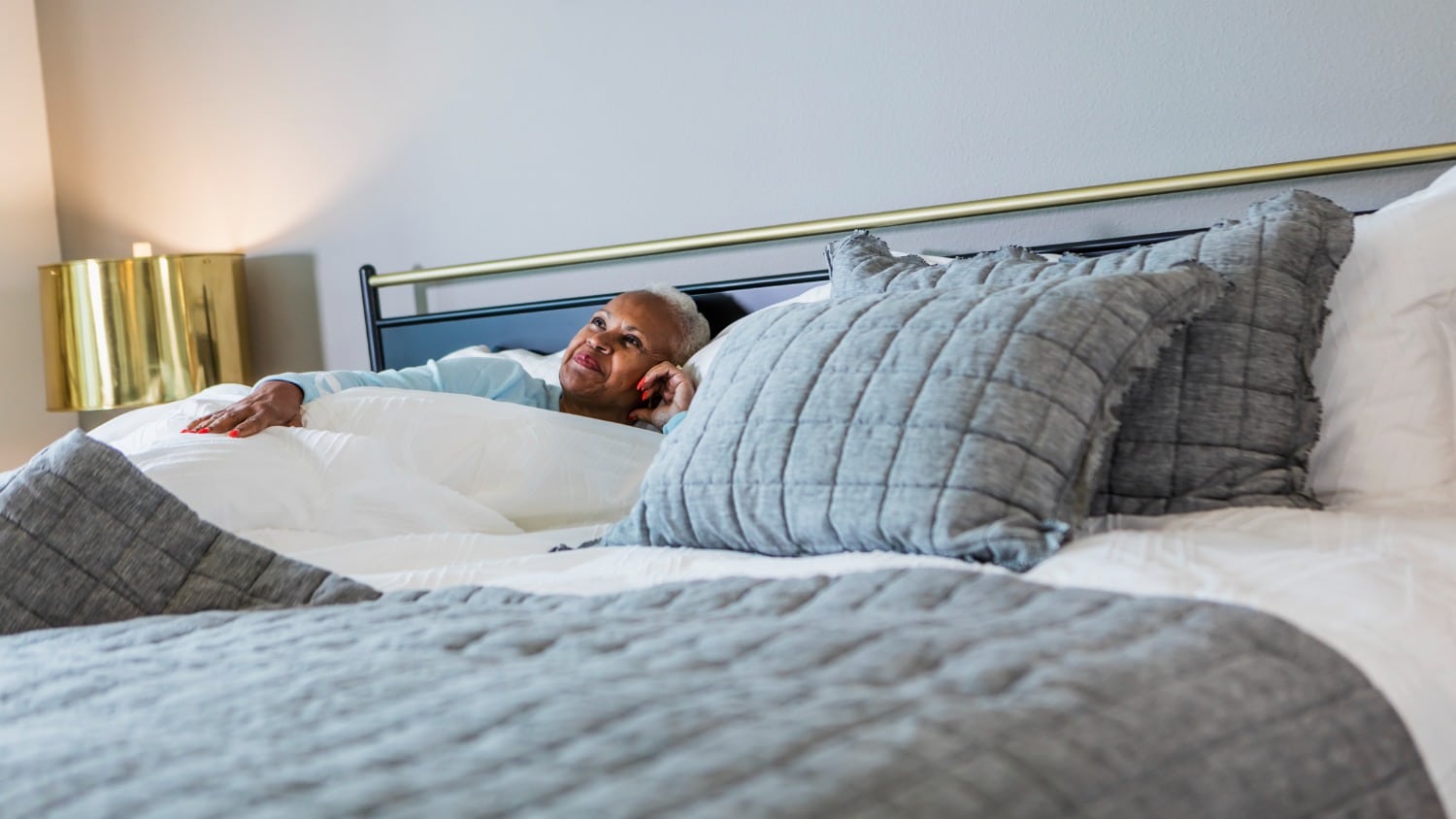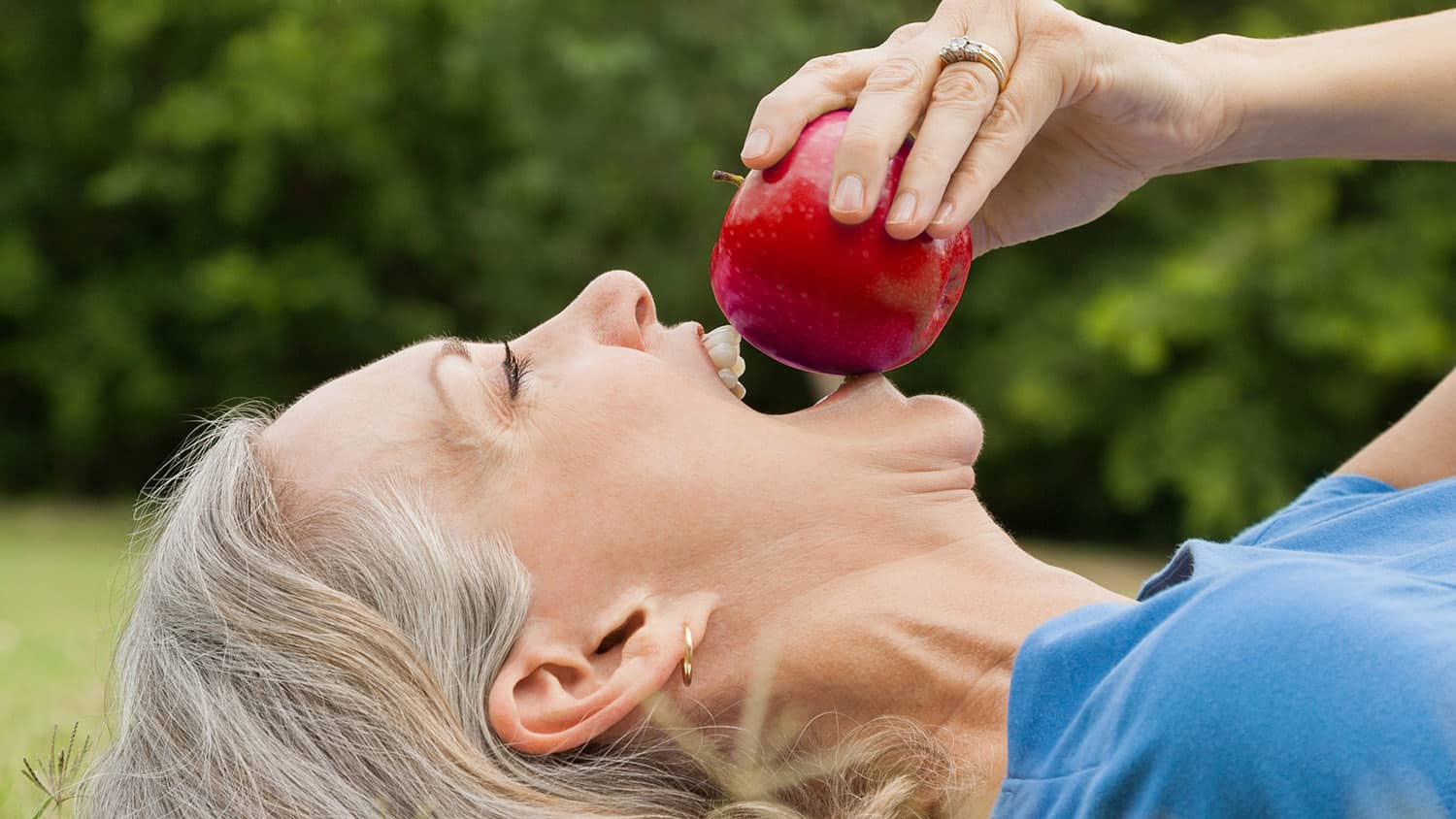Become a Sleeping Beauty: 9 Steps to Better Sleep After 60
As we grow older, we seem to require less sleep, although it doesn’t always feel that way, especially when the alarm goes off! But in fact, this is not strictly true. If we once needed eight hours sleep a night, we still need the same amount of sleep as we age.
We most likely continue to get the same amount, just not in the same way. For example, we may sleep until 2:00am and then wake to an hour or two of reading. We may sleep through to 4:0am and decide to start our day, allowing for a nap in the early afternoon. Learning to take the nap is the hardest part of the equation, but if you need to sleep, do it!
There is a school of thought that believes having a nap during the day interrupts your sleep at night, the theory being that you take the edge off your sleep and will be unable to get a good night’s kip when you need to. I think this is your choice. A 20-minute power nap can make a huge difference, especially if you’re a woman of a certain age and you’re not getting eight hours (or whatever you need) a night.
Sleep is one of the most important aspects of our lives if we are to age successfully. Nothing makes you look more youthful, hotter and sexier, than being well rested. If you don’t sleep as well as you did in your youth, try some of these tips.
- Talk to your doctor about your health and medications
- Limit caffeine and alcohol, especially before bed
- Create a sleep schedule
- Start a gratitude book
- Keep a journal
- Exercise earlier in the day
- Meditate or practice mindfullness
- Throw out your clock
- Keep your electronic devices out of the bedroom for better sleep after 50
Talk to Your Doctor to Start Your Better Sleep Journey After 60
If you have a condition such as severe arthritis, chronic pain or some type of sleep apnoea, getting treatment may help you sleep better. Alternatively, find a natural solution; talk to your local naturopath or other traditional medicine adviser. Here are more suggestions on sleep.
Also, make a point to check with your doctor whether it is possible that some of your medications may be interfering with your sleep. He or she may be able to offer an alternative that is just as effective
Limit your Caffeine and Alcohol Intake
Avoiding excess caffeine and alcohol is recommended because they can interfere with your sleep patterns. As a rule, you should avoid caffeine after mid-afternoon, and yes, that includes your afternoon cup of tea! And, contrary to popular belief, alcohol is a stimulant!
Create a Sleep Schedule
If you have a regular bed time and regular wake time, your body is more likely to promote sleepiness at night and be wide awake during the day. You’re creating a natural rhythm for your body, and your body loves rhythms.
Start a Gratitude Book
Before you switch off your light, write 10 things that happened during the day for which you are grateful. It doesn’t matter how small or insignificant they may seem. Gratitude is never wasted.
Keep a Journal
Writing in a journal regularly will help you work through any daily irritations or perceived problems you may have, instead of taking them to bed with you.
Do Not Exercise Within Four Hours of Your Bedtime
Exercising so close to sleep is much too stimulating. It’s good for sleep, but not if it’s at the wrong time of day. Never exercise less than four hours before you sleep.
For example, if you go to bed at 10.00 pm, do not exercise after 6.00pm. Exercising causes your body temperature to rise, which can make it difficult to fall asleep. And again, if you’re in menopause and having hot spells, you will not want to increase your body temperature before sleep.
Meditate or Practice Some Relaxation Exercises
Learn how to use progressive muscle relaxation before bed, or even as you lie in bed. In any event, the idea is to relax!
Get Rid of the Clock for Better Sleep After 60
If you are anxious about your sleep performance, take the clock out of the bedroom because it’s only adding a pressure of time to you – and you have enough pressure of time during the day.
Bed is for Sleep and Sex
It is not for eating or watching TV – don’t confuse your brain!
And if you really cannot sleep, get out of bed, read something incredibly boring and go back to bed when you start to feel drowsy. Don’t lie awake in bed. You will start to feel stress because you can’t sleep and feel anxiety caused by worrying about how tired you will be tomorrow.
Finally, stay away from synthetics and stimulants, and try the following natural sleep aids instead. Consider tryptophan and serotonin foods, calcium or magnesium. Also think about essential oils, passion flower, valerian root or St John’s wort.
How well do you sleep? Do you get full undisturbed eight hours sleep a night? Do you need more? What do you do when you can’t sleep or stay asleep? Please share in the comments.
Tags How to Sleep Better






